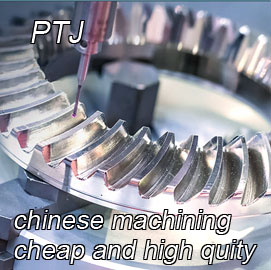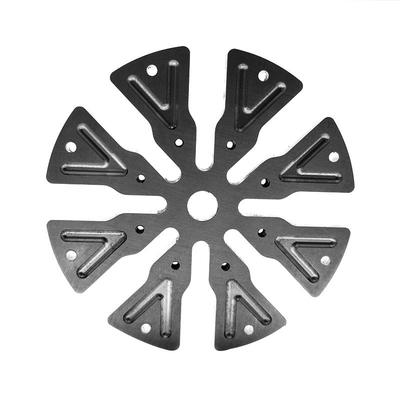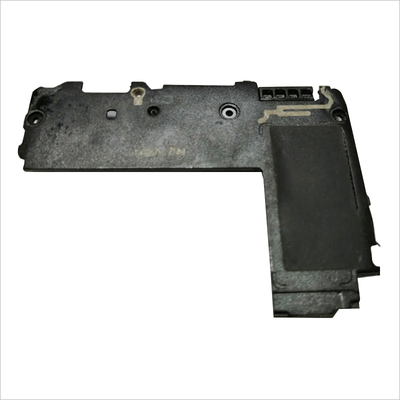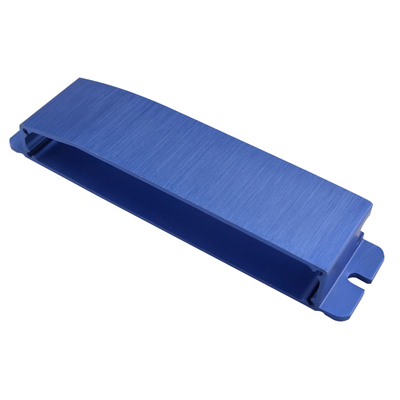3D printing may change the rules of the blockchain field
Supply chain management is becoming the killer application of enterprise blockchain technology, and it is also the first batch of blockchain technology "online". But although multiple blockchain projects around the world are showing how smart contracts, data sharing agreements, and encrypted tracking technology can solve trade financing issues, improve risk management, simplify customs processing, and increase transparency, the maximization of global trade has yet to come. . The maximization of global trade is to finally liberate the Internet of Things, 3D printing and other automation technologies from geographical limitations. At that moment, blockchain technology can develop and operate independently to realize a new decentralized on-demand production model, and further promote the re-adjustment of global economic power.

To achieve this new paradigm, we still need the advancement of related technologies. But equally important is that it will require manufacturers to adopt a more open approach to optimize the balance between competition and collaboration, and to find the role of blockchain in the process of finding this balance.
So far, large manufacturing, shipping, and trading companies tend to view the supply chain from the perspective of the owner. They talk about their supply chain as if it is a club that suppliers join. Suppliers can only join after they have established a trust relationship with the buyer.
These companies inevitably tend to authorize the blockchain system, and the distributed ledger is either managed by a single central group, such as a major retailer or manufacturer, or a consortium of pre-established suppliers. Verify it. The authorized blockchain system further strengthens the "club characteristics" of shared enterprises.
However, when additional manufacturers finally enable them to quickly respond to the needs of customized orders in the vicinity of their customers, they need to quickly contact 3D printer suppliers-including many suppliers that have not yet established a trust relationship.
In this case, an authorized blockchain may be counterproductive, because the instinct of verifiers may be to exercise their common stewardship power to protect their own market interests and the interests of outsiders. But this result will cause opportunities to become increasingly scarce.
In contrast, companies that are more open to business partnerships may find that an unrestricted system will give them a more competitive advantage in the licensed supply chain club.
If 3D printers can specifically identify encryption primitives, and their transactions, data emissions and overall performance can be recorded in an open blockchain trustless and fair registry, then users of such systems can enjoy very smooth It’s easier to respond when user needs arise.
Brave new world
Obviously, all of this relies on major technological improvements in order to make permissionless blockchains more scalable-including the development of payment channels and interoperability protocols for "second-layer" technologies such as the Lightning Network .
It also needs to certify standards for built-in chips so that the interconnected printing machines, sensors and other devices that form these high-tech manufacturing networks can reliably provide data support for this distributed trust system.
So now this scene still exists only in imagination. But this type of thought experiment is useful because it paints a completely different picture of the global economy, and this will trigger a whole new set of challenges.
One of the challenges was predicted by an innovation team from Moog Inc., a precision parts manufacturer, who conceived a Veripart solution for 3D printed parts. Specifically, Moog recognized the need to ensure the integrity of software files shared with different printing machines, so that relevant technical personnel can be used in 3D printing products before they have been introduced (whether it is a hacker or human error) Understand the existence of related defects and make improvements.
As the Moog team realized, this is a problem, and this problem also requires a distributed and trusted blockchain system to track the development process of software code from one engineer to another.
If these changes occur, they will significantly change the ownership structure of the entire manufacturing industry. Labor-intensive factories and assembly lines will be a thing of the past, and there will be fewer links in the production process from primary raw materials to finished products. Importantly, the intellectual property rights attached to the different designs of highly customizable products will be of greater importance.
One can foresee that the supply chain will shift from today’s continuous and iterative production process-in this process, as payments move upstream, goods will move downstream-more will become a team Drive mode. Manufacturing may be the result of cooperation between different intellectual property owners. Everyone requires a smart contract to obtain a pre-agreed proportion of revenue from the final sale. Think about how contributors pay royalties when watching a movie or music project, and you will understand what is going on.
A new concept of labor
Regardless of whether the world will adopt this technology, a key element of this vision will certainly do so: that is to further separate manual labor from manufacturing and continue to take advantage of creative work. For those who wish to make a living on the former, they are faced with a bleak prospect, while for successful designers and owners of well-known brands, they will have greater power.
For a fairer, more harmonious, and more innovative society, we need a dynamic model to allow inventors to be constantly challenged by a large number of new groups and obtain better designs. This means reducing the barriers for newcomers to enter the industry. It also means that we need to further restrict the power of the original makers of industry rules to prevent others from making innovative efforts.
In this vision, a decentralized architecture is also crucial.
With the development of the global economy, encouraging people to control their data and ideas and be able to trade in their own way will become a very important practice.
This is an exciting future, but such a future may also have many problems. A model based on the principles of open source, open access, and license-free innovation is the best way to achieve balance.
Link to this article: 3D printing may change the rules of the blockchain field
Reprint Statement: If there are no special instructions, all articles on this site are original. Please indicate the source for reprinting:https://www.cncmachiningptj.com
 PTJ® is a customized manufacturer that provides a full range of copper bars, brass parts and copper parts. Common manufacturing processes include blanking, embossing, coppersmithing, wire edm services, etching, forming and bending, upsetting, hot forging and pressing, perforating and punching, thread rolling and knurling, shearing, multi spindle machining, extrusion and metal forging and stamping. Applications include bus bars, electrical conductors, coaxial cables, waveguides, transistor components, microwave tubes, blank mold tubes, and powder metallurgy extrusion tanks.
PTJ® is a customized manufacturer that provides a full range of copper bars, brass parts and copper parts. Common manufacturing processes include blanking, embossing, coppersmithing, wire edm services, etching, forming and bending, upsetting, hot forging and pressing, perforating and punching, thread rolling and knurling, shearing, multi spindle machining, extrusion and metal forging and stamping. Applications include bus bars, electrical conductors, coaxial cables, waveguides, transistor components, microwave tubes, blank mold tubes, and powder metallurgy extrusion tanks.
Tell us a little about your project’s budget and expected delivery time. We will strategize with you to provide the most cost-effective services to help you reach your target,You are welcome to contact us directly ( sales@pintejin.com ) .

- 5 Axis Machining
- Cnc Milling
- Cnc Turning
- Machining Industries
- Machining Process
- Surface Treatment
- Metal Machining
- Plastic Machining
- Powder Metallurgy Mold
- Die Casting
- Parts Gallery
- Auto Metal Parts
- Machinery Parts
- LED Heatsink
- Building Parts
- Mobile Parts
- Medical Parts
- Electronic Parts
- Tailored Machining
- Bicycle Parts
- Aluminum Machining
- Titanium Machining
- Stainless Steel Machining
- Copper Machining
- Brass Machining
- Super Alloy Machining
- Peek Machining
- UHMW Machining
- Unilate Machining
- PA6 Machining
- PPS Machining
- Teflon Machining
- Inconel Machining
- Tool Steel Machining
- More Material





